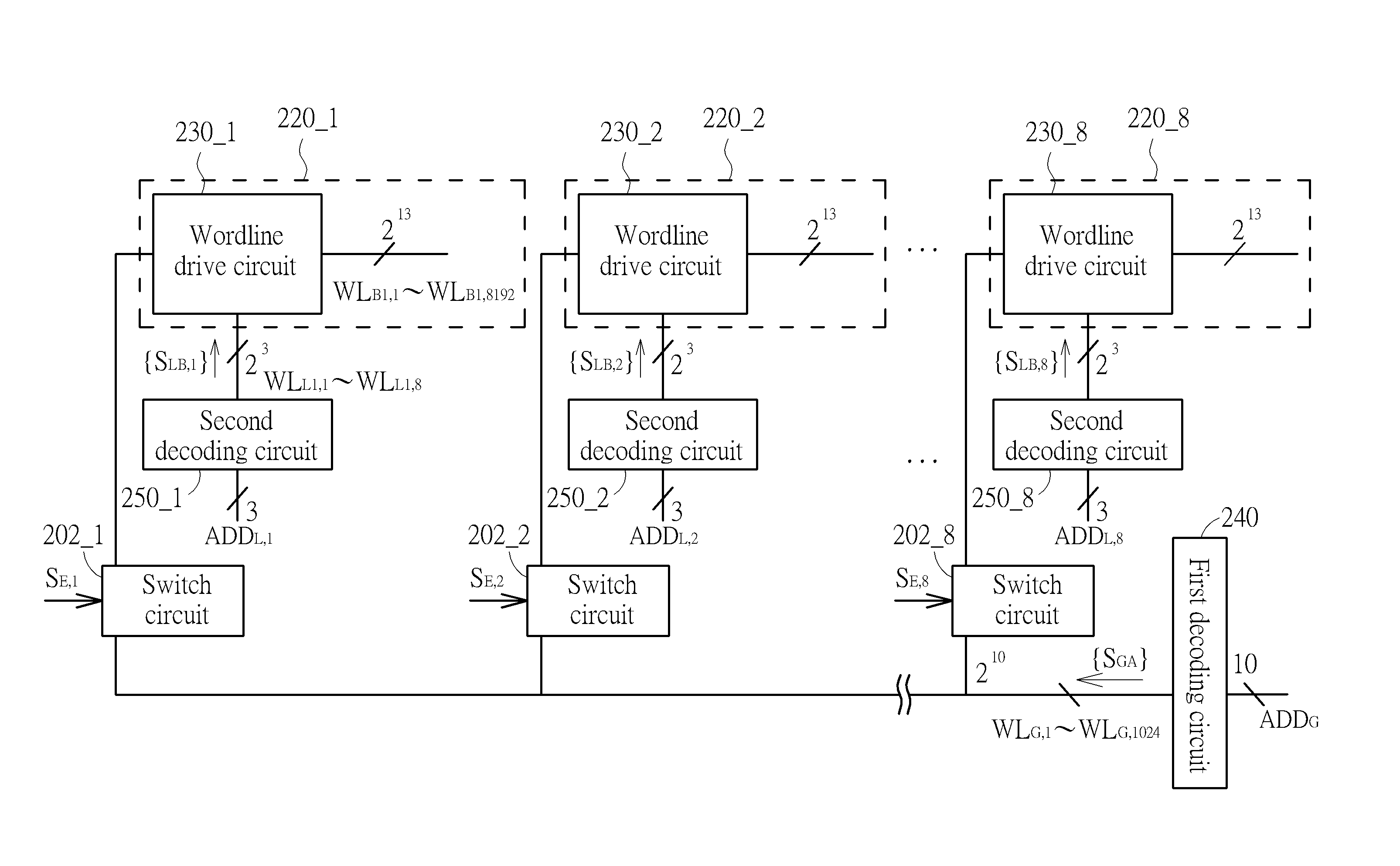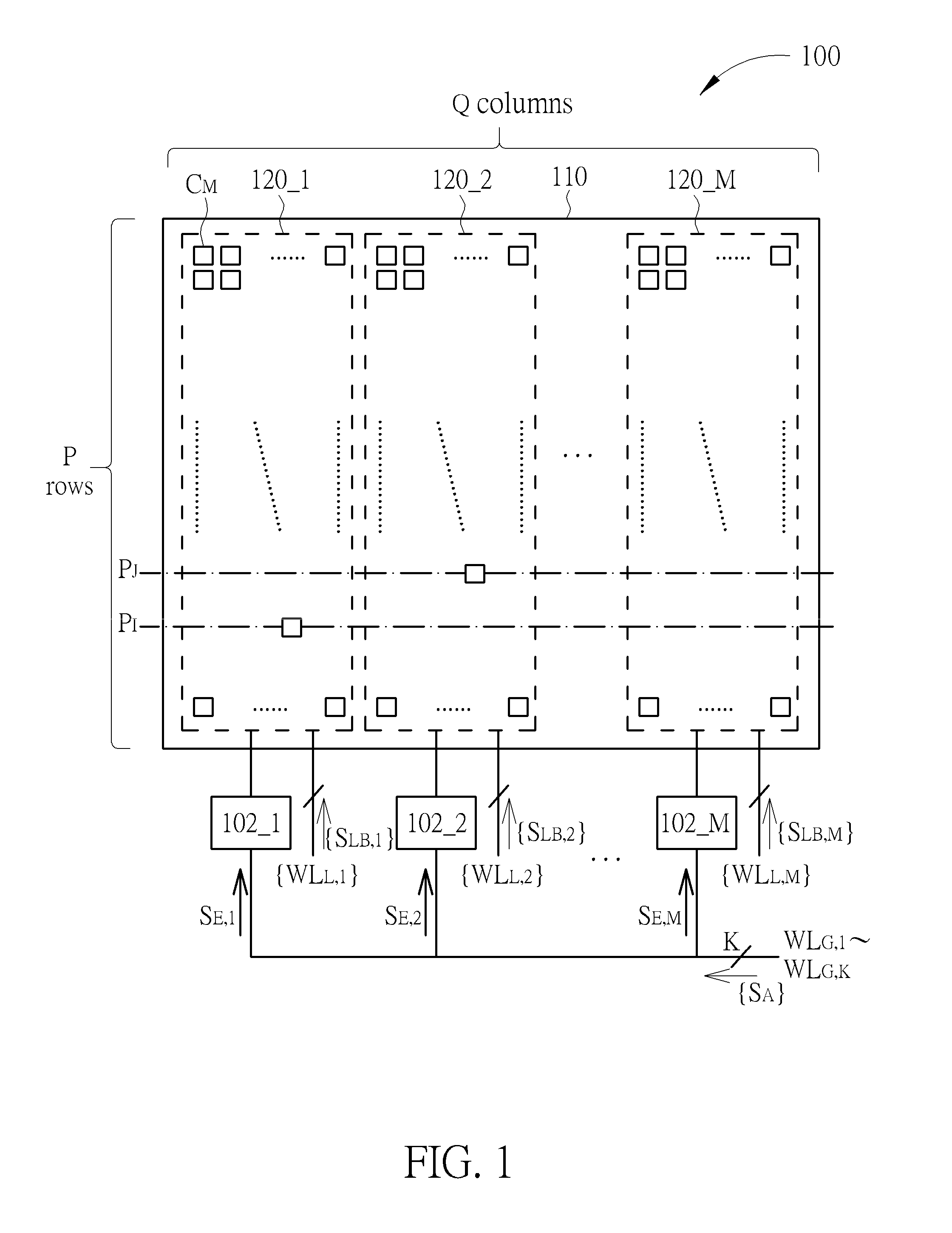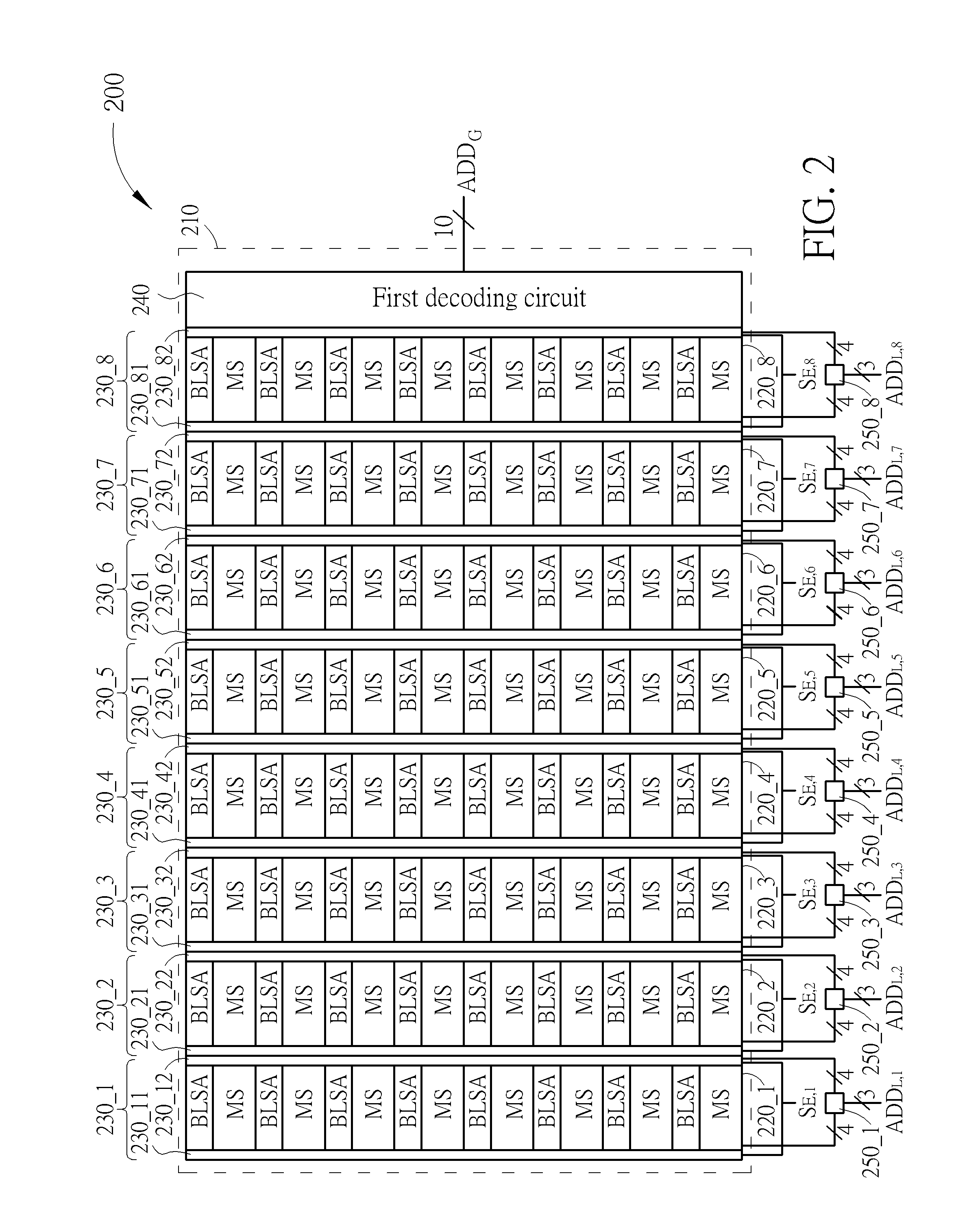Memory architecture dividing memory cell array into independent memory banks
a memory cell array and memory technology, applied in the memory field, can solve the problems of increasing the area and cost of memory dies, affecting the transfer time greatly affects the random access cycle time of the dram, so as to achieve high bandwidth data access and high speed random access.
- Summary
- Abstract
- Description
- Claims
- Application Information
AI Technical Summary
Benefits of technology
Problems solved by technology
Method used
Image
Examples
Embodiment Construction
[0017]By dividing a memory cell array into a plurality of memory banks, which operate independently of each other, and employing a hierarchical wordline structure, the proposed memory architecture may provide high speed and flexible data access mechanism. Further description is provided below.
[0018]Please refer to FIG. 1, which is a diagram illustrating an exemplary memory architecture according to an embodiment of the present invention. The memory architecture 100 may include, but is not limited to, a memory cell array 110 which includes a plurality of memory cells arranged in P rows and Q columns (P and Q are positive integers), wherein each memory cell is labeled CM. Each memory cell may be disposed in correspondence with an intersection of a row and a column. By way of example but not limitation, each memory cell may be a one-transistor one-capacitor (1T1C) memory cell. The memory cell array 110 may further include M memory banks 120_1-120_M (M is a positive integer), wherein ea...
PUM
 Login to View More
Login to View More Abstract
Description
Claims
Application Information
 Login to View More
Login to View More - R&D
- Intellectual Property
- Life Sciences
- Materials
- Tech Scout
- Unparalleled Data Quality
- Higher Quality Content
- 60% Fewer Hallucinations
Browse by: Latest US Patents, China's latest patents, Technical Efficacy Thesaurus, Application Domain, Technology Topic, Popular Technical Reports.
© 2025 PatSnap. All rights reserved.Legal|Privacy policy|Modern Slavery Act Transparency Statement|Sitemap|About US| Contact US: help@patsnap.com



